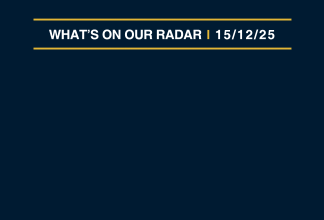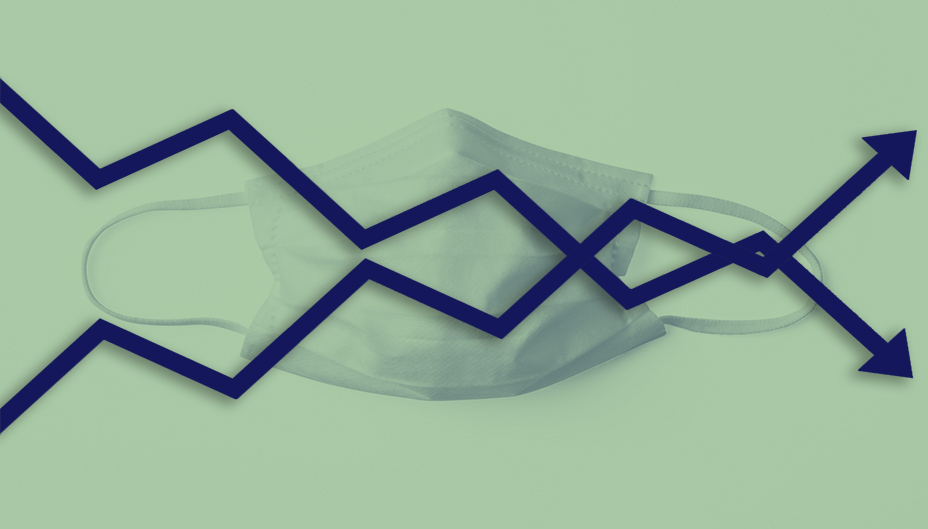A Look at Economic and Market Implications of Coronavirus
Written by The Content Team
Published on February 4, 2020
minute read
Share:
North American markets had their worst trading days in months recently amid uncertainty over how the spread of the new coronavirus will affect economic growth and consumer confidence levels. Uncertainty, of course, is never good for stock markets — and in the case of the Wuhan, China-originated viral outbreak, there are many uncertainties.
The number of people affected or killed by the virus rises daily, with cases surfacing in nations around the world, including Australia, France, Canada and the U.S.
As new details emerge every day, the situation has many people revisiting the effects of past outbreaks, such as the SARS epidemic in 2002-03, and more recently Ebola, Zika and MERS.
To gain some perspective on potential economic and market impacts of the new coronavirus, we looked to the experts at RBC Global Asset Management (RBC GAM) who have been following developments closely.
First off, what are the economic implications?
"From this point on, everything is highly speculative. The economic damage so far is likely nil outside of China, and limited within China. However, the damage can only grow," says Eric Lascelles, Chief Economist at RBC GAM. Theoretically, he says, economic damage could manifest as a result of fewer workers due to illness and for precautionary reasons, as well as a decline in shoppers and travelers due to concerns over the spread of the virus.
The energy sector saw some early fallout as massive travel restrictions in China – particularly during the busy Lunar New Year tourism period – weighed on oil prices due in part to waning demand for jet fuel.
Lascelles is quick to point out that none of the past outbreaks we look to as comparisons ultimately resulted in any lasting influence on economies or financial markets.
Specifically, he notes that with SARS, Chinese gross domestic product growth briefly slowed on an annual basis, while Hong Kong's output declined temporarily. Among developed countries, he says Canada was "disproportionately" hit by SARS, which led to the economy shrinking at the height of the epidemic in the second quarter of 2003. The U.S. economy, on the other hand, "continued trucking along as the country suffered fewer cases."
Still, as investors should always keep top of mind, past performance is no guarantee of future results.
What about markets?
As you've likely experienced in the last little while, market reactions can be felt more immediately than overall economic impacts. To gain some perspective, RBC GAM looked at how U.S. markets reacted to past outbreaks, such as SARS, H1N1, H7N9 (Avian influenza) and Ebola. Markets troughed within 20 days of the key outbreak dates, but RBC GAM economists caution that the SARS outbreak did coincide with a weak U.S. economy and the lead up to the Iraq war.
"Whether the market recoil continues will depend entirely on whether the situation continues to deteriorate to a greater extent than currently imagined," Lascelles says.
What can investors do? That's a personal choice, tied to your investing style and overall goals. One thing is certain: keeping your emotions in check when making your decisions can only benefit you.
RBC Direct Investing Inc., RBC Global Asset Management Inc. and Royal Bank of Canada are separate corporate entities which are affiliated. RBC Direct Investing Inc. is a wholly owned subsidiary of Royal Bank of Canada and is a Member of the Investment Industry Regulatory Organization of Canada and the Canadian Investor Protection Fund. Royal Bank of Canada and certain of its issuers are related to RBC Direct Investing Inc. RBC Direct Investing Inc. does not provide investment advice or recommendations regarding the purchase or sale of any securities. Investors are responsible for their own investment decisions. RBC Direct Investing is a business name used by RBC Direct Investing Inc. ® / ™ Trademark(s) of Royal Bank of Canada. RBC and Royal Bank are registered trademarks of Royal Bank of Canada. Used under licence. © Royal Bank of Canada 2020. All rights reserved.
The views and opinions expressed in this publication are for your general interest and do not necessarily reflect the views and opinions of RBC Direct Investing. Furthermore, the products, services and securities referred to in this publication are only available in Canada and other jurisdictions where they may be legally offered for sale. If you are not currently resident of Canada, you should not access the information available on the RBC Direct Investing website.
Explore More

7 Ways to Get Ahead Financially in 2026
How you might invigorate your finances and put your money to work more intentionally this year
minute read

Economic Outlook: Uncertainty is Here to Stay, So What's Next?
Takeaways from the Economic Club of Canada’s Annual Event
minute read

3 things: Week of December 15
What the Inspired Investor team is watching this week
minute read
Inspired Investor brings you personal stories, timely information and expert insights to empower your investment decisions. Visit About Us to find out more.







